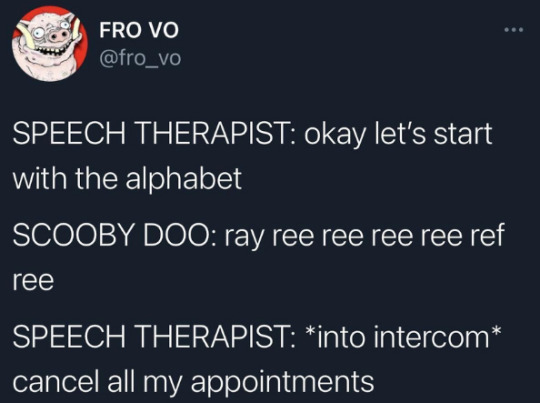#Speech Therapy
Text
Do you think you speak too fast/ too slow?


Here is what I learned from a speech coach.
warm up:
start this exercise by taking a deep breath and saying “aaaaah” - try to extend this to 30 seconds. Now if it doesn’t go till 30, that’s fine. Aim to work your way to that. If you can work it up to 30, go for 45/60 seconds. Do this 5 times.
next.
Download an app called Metronome beats. It’s basically what singers/ musicians use for beats.
Settings:
keep beats/bar as 1,
clicks/beats as 1
start at 90. It will start with a click sound and continue “beeping.”
Match your words to the beep. One beep = one word. Now slowly, increase the beat by 5 till you reach 110. Increase it at your own pace but try to spend at least 20 seconds on each number (90 for 20 seconds; 95 for 20; 100 for 20….) That’s when you stop.
either start by reading something out loud and matching the beat, or select a topic and speak freely.
do this every single day. This will help with your breath, if you’re speaking on a topic it will help you think better and improve over time. The best way to further complement this exercise is to improve your vocabulary. Try to learn 1-3 new words a day and incorporate it in your vocabulary.
This is a great tool to use when learning new languages too. You can practice your speaking skills and see how fast you can remember/ read words.
#c suite#personal growth#ceo aesthetic#powerful woman#strong women#that girl#productivity#getting your life together#balance#Speech#How to speak#speech therapy#breath work#speaking#small talk#speaking confidence#How to#giving a speech#Talking publicly#Presenting tips#presenting#speaking tips
2K notes
·
View notes
Text
Giving nonspeaking kids and kids with difficulty using oral speech access to AAC as soon as possible needs to be normalized.
Of course you want your child to communicate, that's fine, that's GOOD. But oral speech isn't the only way to do that, and refusing to give your child a way to communicate because it isnt the form of communication you favor isn't okay.
Its OKAY if your kid never learns (or relearns) to use oral speech. ITS OKAY.
"But I put them in speech therapy to learn to talk! I don't want them to use that tablet all their life. They need to learn to talk using their mouthparts." Why??
First of all, AAC is proven to actually help people develop language skills and oftentimes oral speech. So any concern about AAC hindering development of oral speech is uncalled for and irrational. But along with that, ORAL SPEECH ISNT THE ONLY GOOD FORM OF COMMUNICATION!! AAC is good. Sign is good. Etc.
Saying otherwise and/or preferring your child to use oral speech IS ableist, and yes, it IS harmful to everyone.
#nonspeaking#aac#actually autistic#neurodivergent#autism#aac user#nonspeaking autistic#aac device#disabled#aac users#level 2 autism#level 2 autistic#high support needs#autipunk#nonverbal#speech loss#speech therapy#actually nonspeaking#actually nonverbal#actually mute#autistic and queer#autism acceptance
2K notes
·
View notes
Text
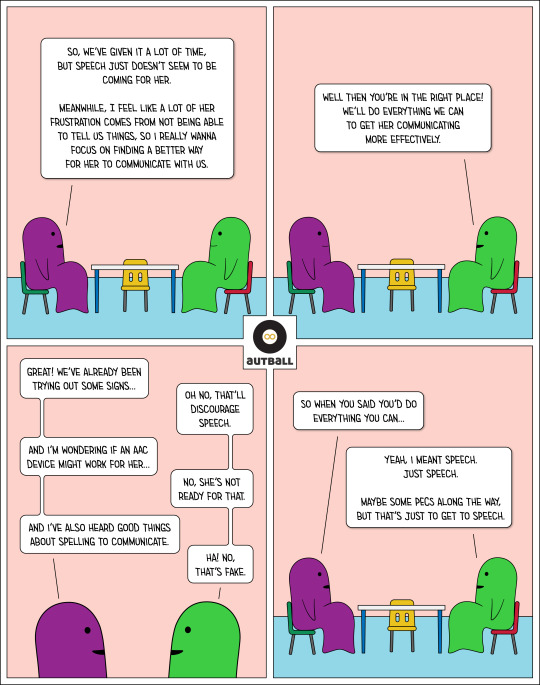
Gatekeeping communication methods = time to find a new practitioner.
[Image description: A 4 panel cartoon by Autball.
1: Two adults, one purple and one green, sit across from each other at a table and chairs in primary colors that are a bit too small for them. Purple says, “So, we’ve given it a lot of time, but speech just doesn’t seem to be coming for her. Meanwhile, I feel like a lot of her frustration comes from not being able to tell us things, so I really wanna focus on finding a better way for her to communicate with us.”
2: Same scene. Green says, “Well then you’re in the right place! We’ll do everything we can to get her communicating more effectively.”
3: Close up of Purple and Green, having a series of quick exchanges.
Purple: Great! We’ve already been trying out some signs…
Green: Oh no, that’ll discourage speech.
Purple: and I’m wondering if an AAC device might work for her…
Green: No, she’s not ready for that.
Purple: and I’ve also heard good things about Spelling to Communicate.
Green: Ha! No, that’s fake.
4: Original scene. Purple says, “So when you said you’d do everything you can…” Green replies, “Yeah, I meant speech. Just speech. Maybe some PECS along the way, but that’s just to get to speech.”]
#autism#autistic#actually autistic#autistic experiences#autistic problems#nonspeaking#nonverbal#apraxia#dyspraxia#speech therapy#aac#communication is a right
442 notes
·
View notes
Text
Soulmate au where they switch bodies under certain circumstances. Cass saves Danny from Skulker while in Jazz's body. Jazz either gets the batfam to talk about their feelings, tells Damian and Jason that they, and Cass, are liminal, or both.
#dp x dc#dc#dc comics#danny phantom#batfam#jasmine fenton#jazz fenton#cassandra cain#cass cain#speech therapy#speech therapy ship#prompt#soulmate au
269 notes
·
View notes
Text
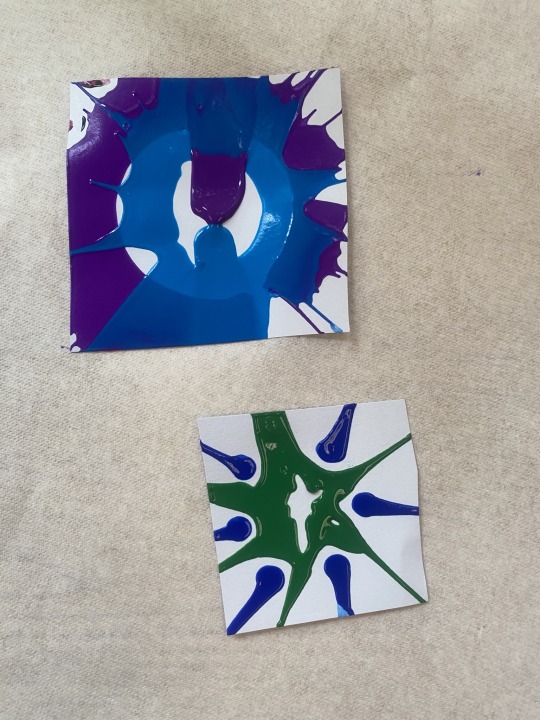
Speech therapy paint spinning thing
67 notes
·
View notes
Text

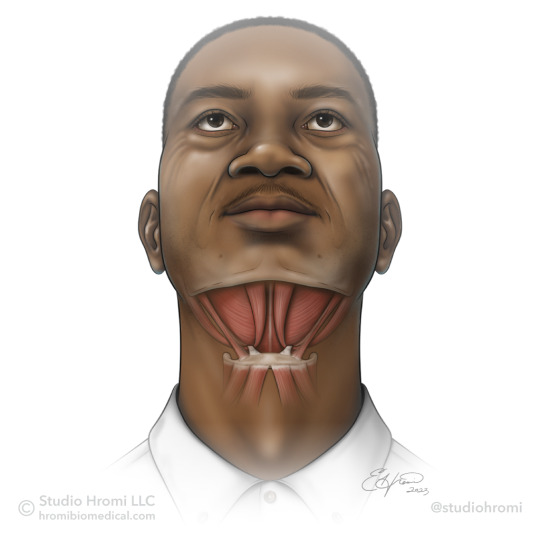
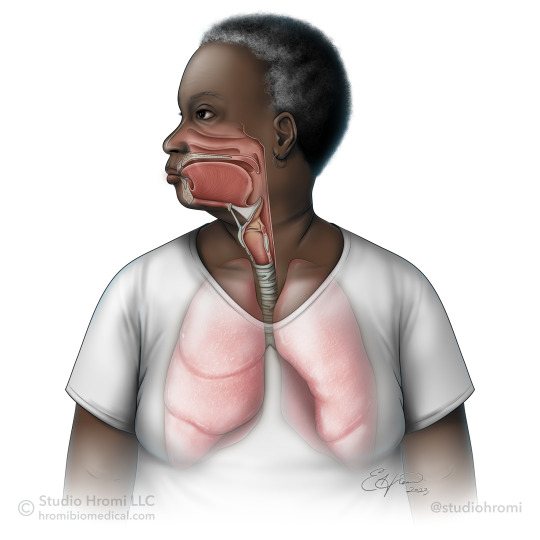
Some recent medical illustration work for Honeycomb Speech Therapy, highlighting various anatomical components involved in speech.
#medical illustration#speech therapy#slp#speech therapist#voice#anatomy#anatomical art#biomedical art#medart#sciart#digital illustration#illustration#scientific illustration#medical art#science and art#my art
25 notes
·
View notes
Text
I love my speech therapist a lot, we stim together a lot when we both get excited, she's so much fun to talk with!
She helps me out a lot with self advocacy as well, we're working on finding ways for me to let people know about my disabilities and stand up for myself when people don't want to listen!
She'll gladly listen to me infodump without getting annoyed. If I say a word wrong she just quickly helps me correct it before letting me continue.
She doesn't get mad at me when I continuously mess up a word, that's a really big deal to me!
She doesn't get mad at me when I don't understand sarcasm or a joke, instead she explains it to me and tells me the context that people may use said joke in.
She actually takes the time to understand how I express my emotions and my sense of humor!
Even though she doesn't have to, she used her own personal experiences to help explain social situations to me/how to react to said situations.
She's been actively trying to help me get a proper on-paper autism diagnosis, since I still don't have one despite being told by multiple professionals that I do have the 'tism.
When I ask her to watch a video related to my special interest, she'll actually watch it! Most people won't even look at any videos that I ask them to watch! It might take her a few days because she's busy, but she will always watch them 100% of the way through!
#autistic#autism#autism spectrum disorder#autistic things#actually autistic#speech impediment#speech issues#hard of hearing#hoh#actually hoh#actually disabled#speech therapy
7 notes
·
View notes
Text
FEBUWHUMP 2023 DAY 9 - Voice loss
CW: mutism, trauma
You got a mute Whumpee on your hands, so what's next?
Depending on the reason why they remain silent (trauma, disfigurement during torture or even innate mutism/deafness) Caretaker has different options to interact, especially if they start out as an unaware stranger:
・・・・・・・・・・・・・・・・・・・
Non-Verbal communication:
Not just gestures or facial expression can convey Whumpee's current mood
Different sounds (e.g. humming) are often clear to everybody
The pitch or tone of these noises can indicate rejection or approval, up to requests for interaction → a curious trill can show their counterpart to continue talking
Written communication:
They just write down what they need, be it on a phone or a notepad
If you sprinkle a bit of a language barrier in there, it gets even better
Cards with pictures of everyday activities or objects. They shorten the time to write down and break any language barrier (a good example is the K&J x MMSS 2 crossover by @whumpsday and @not-a-space-alien)
Text-to-speech with short pre-programmed questions and answers for everyday living, therefore making responses quicker. It also teaches Whumpee to use technology → Whumpee can also customize their voice, thus getting used to "speaking" again
Sign language:
Caretaker and Whumpee can learn to use signs together and practice with each other
They can settle for ASL as a recognized and widely practiced language, visit local classes or make up their own signs if they don't have the options or the setting limits this accessibility
Bonus → Speech therapy:
A bonding moment for Whumpee and Caretaker
BUT also a root for lots of angst and anger, e.g. Whumpee being frustrated with their (lack of) progress and getting upset
・・・・・・・・・・・・・・・・・・・
@febuwhump
[Febuwhump 2023 Masterlist]
#whump#whumpblr#creative writing#whump community#whump drabble#febuwhump#febuwhump2023#febuwhumpday9#mutism#voice loss#speech therapy#caretaker x whumpee#communication#mute whumpee#trauma#writing ideas
95 notes
·
View notes
Text
Stuttering Sucks
I have stuttered as long as I can remember. But I think it got worse in college...or I became more self-conscious. Maybe both.
My loved ones have never looked down on me for my stuttering and they always reassure me that they don't care. My boss told me the same a few months back when I expressed a desire to skip team standups. I really appreciate it but it is so hard not to feel bad about myself sometimes.
I don't think stuttering is a disability but it definitely makes life uncomfortable. I don't think some people understand why stuttering can be so annoying and frustrating. Here are some examples:
People ignoring you. My English teacher in grade 9 switched her attention from me one time when I struggled to ask a question in class. That hurt a lot. That kind of behaviour does not happen often though. But I have had experiences where I try to ask something or talk to someone and they disregard me (probably because they don't realize I am trying to speak to them).
Difficulty saying my name when I meet new people. I literally spent the fall semester of my sophomore year avoiding meeting new freshmen in my Christian group because of this. I remember trying to say my name to this freshman guy after fellowship one night and I struggled for at least a minute. I was laughing it off but I almost wanted to cry. Circle introductions sometimes fill me with dread as well. There was another time in sophomore year when I tried introducing myself to this senior girl and I had to eventually give up and use my student id. She was cool about it though (still embarrassing).
Sounding stupid. Having broken speech does not make you sound professional at all :(. You have the sentence well articulated in your head but then you have to switch words or use filler when it comes time to speak. Ugh. It's hard to fully express my ideas and sometimes the people listening to me have to fill in the gaps T-T. It's especially frustrating when I do team meetings or presentations. I feel like I am not explaining myself well.
Talking can be painful. Like almost physically painful. Being tense does not help for sure. But even when I feel relaxed, it's like trying to force a rock out of my mouth sometimes. It's almost like I am fighting against my own tongue. I could be speaking fine and then I stumble over one word that refuses to leave my mouth.
Joking can be awkward. It's a small thing but casual jokes are a part of normal friendly talk. But jokes depend on timing and delivery. I think it's obvious why stuttering would ruin a joke.
I did speech therapy for about a year in college and I am considering doing it again. The final lesson my therapist told me was accepting my stutter. I definitely think about it more than others do so I should not worry about it but it is really impacting my confidence - especially at work. Make no mistake - I am a very opinionated and expressive person so this difficulty does not make me hide at home but you know it just makes me feel bad at times.
There was literally a week in a few months ago (May I think) where people kept bringing up my stutter. Family, friends...even 2 drivers! The two driver guys told me they stuttered too and that it went away with age. It filled me with hope not gonna lie but I am unsure if that will be my case.
Small acts help. Sometimes I ask my friends to introduce me if I meet a friend of theirs to take the pressure off me. Or I use my work id to help introduce myself sometimes. Someone at church found it a bit funny when I did it this week (I had a church event after work so I had my work id on me) but who cares? If it helps.
Thanks for reading my stuttering TED talk. I had an awful week with a bunch of frustrating presentations and I had to get this off my chest and stop my mind from torturing me and spiralling in shame about how I sounded.
#stuttering#stammering#speech impediment#speech impairment#stuttering struggles#disability#kind of but not really#work struggles#the struggle is real#self conscious#embarassment#self esteem#speech therapy#speech
20 notes
·
View notes
Text
When I see AAC representation in mainstream media...
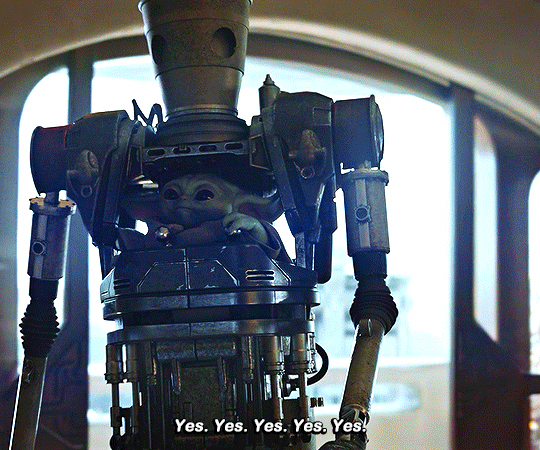
31 notes
·
View notes
Text
Something that I think a lot of people don't know about and don't talk about enough is that loosing oral speech can and if for a long enough time, will damage your vocal cords.
I can attest to the fact that there are many challenges that come with not being able to speak orally. One of the lesser-known consequences of prolonged loss of oral speech is the potential damage it can cause to one's vocal cords. When someone stops using their vocal cords to make speech, the muscles can weaken, and the vocal cords themselves can atrophy. This process is similar to what happens when you break a bone. You are put into a cast, ergo that limb is immobilized. If you don't use the limb for a long time, the muscles will weaken, and you may need to do physical therapy to regain strength and range of motion. In the same way, if someone doesn't use their vocal cords for an extended period, they may need to do speech therapy to help with the deterioration of vocal cords. I do want to quickly note that I haven't been put in speech therapy for this reason before (though I have been in speech therapy for other reasons, of course).
The first time I lost speech for a long period of time was when I was 10-12 (I cant remember the exact age right now, I'm sorry. I know I've listed it in other posts if you are curious though, but if you don't want to check, just know it was somewhere in that age range. My brain is feeling "fuzzy" with time this morning.) and it was for four months. Once I regained some mouth words, my vocal cords were extremely weak and difficult to use. My speech was practically unintelligible for a bit. The first thing I had said was "Do we have woodpeckers?" because I heard a noise outside that sounded like them (news flash, it wasnt woodpeckers. Woodpeckers arent even in my state so I don't know what was going through my head.), but due to the weakness in my vocal cords it sounded more like "da-wee...ave.. w-ah-pehck..ehs?". It was painful to use my oral voice, I was straining it just to say that sentence. It was extremely quiet, and shaky. I also was unable to control my breathing (not my normal breathing. I mean the breathing patterns required to use oral speech), causing a lot of gaps between speech sounds.
I obviously don't know what my oral voice sounds like now, but I can feel it getting weaker again when I hum as a stim.
It's important for people to understand that losing oral speech is not just a matter of finding a different way to communicate; it can have significant and lasting impacts on our physical health as well.
#nonspeaking#nonverbal#speech loss#actually autistic#neurodivergent#aac user#nonspeaking autistic#autism#aac device#aac users#disabled#disability#speech therapy#vocal cord damage
363 notes
·
View notes
Text
Speech & Language Pathology Stroke Terms
Disorganised list of terms used in slt for stroke- for study/quick reference.
AAC- Alternative augmentative communication.
ABI- Acquired brain injury (anytime after birth).
Agnosia- Inability to process sensory information (in Greek gnosis- "not knowing").
Aphasia- Impairment of language, affecting the production or comprehension of speech and the ability to read or write, depending on the affected area of the brain. (Greek a/without + phásis/speech").
Apraxia- Inability to execute purposeful, previously learned motor tasks, despite physical ability and willingness. (Greek a/without + praxis/action).
Aspiration- Food or fluid accidentally enters the lungs through the windpipe, often as a result of dysphagia.
Bilateral- Involving or affecting both sides, usually referencing both sides of the body.
Capacity- Ability to reason, make decisions and consider choices, express views and receive and understand information (AWI= Adult With Incapacity).
Cerebro-Vascular Accident (CVA)- Stroke.
Cognitive function- Anything involving thinking.
Deep Vein Thrombosis (DVT)- Blood clot forms in a deep vein.
Deglutition- The act of swallowing.
Dementia- Decline of function in the brain causes cognitive problems such as difficulty with memory, understanding and mood.
Dysfluency- Any type of speech which is marked with repetitions,
prolongations and hesitations; an interruption in the flow of speech sounds. Commonly known as stuttering or stammering.
Dysarthria- Collection of motor speech disorders.
Dysphagia- Swallowing difficulties.
Embolism- Blockage of a blood vessel by a blood clot or piece of fatty material or other debris in the blood stream. An embolism is a type of stroke.
Enteral feeding- Feeding through a tube connected to the person's stomach.
FAST test- 'Facial drooping, Arm weakness, Speech problems, Time to call 999'
Fluency- Smoothness with which sounds, syllables, words and phrases are joined together during oral language.
Hemorrhagic stroke- Caused when a blood vessel in the brain bleeds into the brain tissues or the space around the brain.
Hemianopia- Loss of one half of your visual field.
Hemiparesis- Weakness on one side of the body.
Hemiplegia- Complete paralysis on one side of the body.
Hypotonia- Abnormal decrease of muscle tone.
Ischemic stroke/ Infarct- Damage to the brain caused by lack of blood flow, usually from a clot. An area of tissue that is dead because of a loss of blood
supply. This is the most common type of stroke.
Infarction- A sudden loss of a tissue’s blood supply causing the
tissue to die.
Ischemia- Blood flow (and thus oxygen) is restricted or reduced in a part of the body.
Ischemic penumbra- Areas of damaged but still living brain cells arranged in a patchwork pattern around areas of dead brain cells.
Lacunar stroke/infarct- When a small artery deep in the brain becomes blocked, causing a small area of damaged brain tissue.
Left hemisphere- Controls speech, comprehension, arithmetic, and writing.
Muscle tone- The degree of natural tension in a person's muscles. Abnormally high muscle tone can lead to muscle tightness and stiffness (spasticity). Very low muscle tone can cause floppiness (hypotonia).
Muscle tension- When muscles of the body remain semi-contracted for a period of time in the resting state.
Naso-gastric (NG) tube- Medical catheter that's inserted through your nose into your stomach. Used both to deliver substances to your stomach and to draw substances out.
Neglect- Not being aware of one side of the body and/or environment.
Neuron- Nerve cell.
Neuroplasticity- The ability of undamaged parts of the brain to take over the jobs of damaged areas.
Nystagmus- Continuous uncontrolled movement of the eyes.
Paralysis- Partly or entirely unable to move the affected parts of the body.
Percutaneous endoscopic gastrostomy (PEG)- Feeding tube placed through the abdominal wall and into the stomach.
Right hemisphere- Controls creativity, spatial ability, artistic, and musical skills
Stroke- Occurs when something blocks blood supply to part of the brain or when a blood vessel in the brain bursts.
Spasticity- Abnormal increase in muscle tone or stiffness of muscle
Thrombolysis- An early treatment for some types of strokes caused by a blood clot.
Thrombosis- A blood clot that forms in an artery.
Transient Ischaemic Attack (TIA)- sometimes called a “mini-stroke”. Blood flow to the brain is blocked for a short time, usually no more than 5 minutes.
Vertebral artery dissection (VAD)- A tear in the walls of an artery at the back of the neck, blood can then get between the layers of artery walls and can lead to a clot forming, causing a blockage (a stroke).
Visual field loss- The loss of sight in a particular area of visual field.
16 notes
·
View notes
Text
A new instalment in Les petits bavards series. Following La langue têtue de Nour, now we get Moïse, l’athlète de la parole!
In bookstores March 12
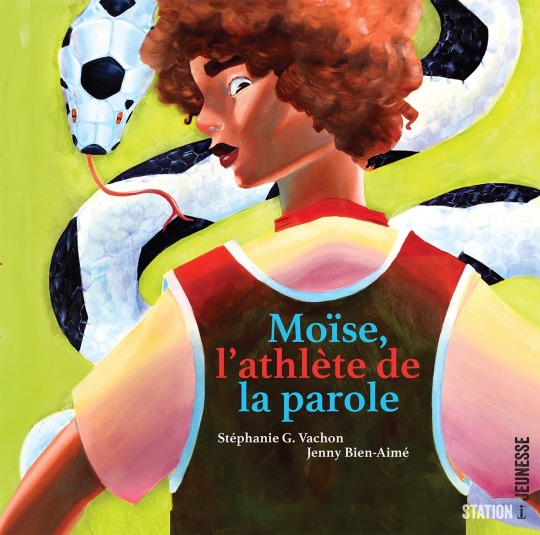

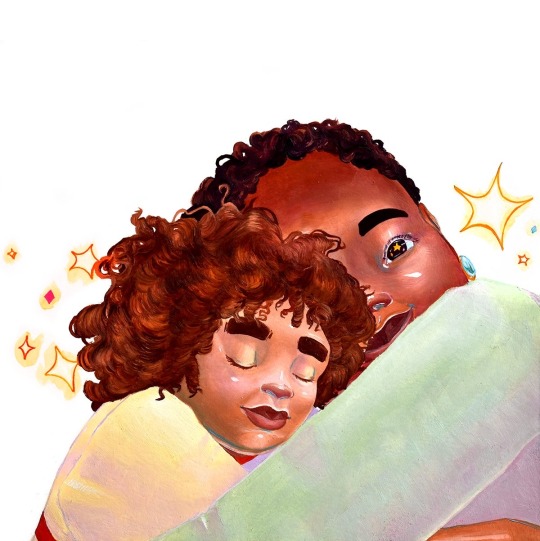


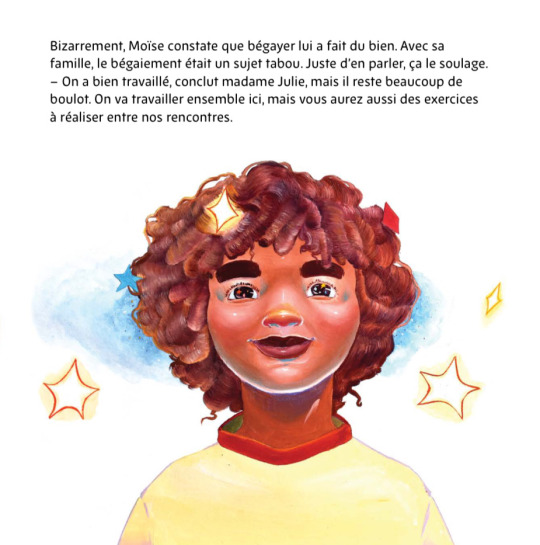

#illustration#publishing#children books#traditional illustration#oil painting#speech#speech therapy#picture books
4 notes
·
View notes
Text
I was told someone is out there making Speech Therapy (the shipname for Jazz/Cass) content, but I can't find said content. I found the tag itself on ao3, but it's in the Unsorted Tag Category, so I can't find anything with the tag. It is very upsetting to know that there is Speech Therapy content that I can't find.
#dp x dc#dc comics#danny phantom#jasmine fenton/cassandra cain#jazz/cass#speech therapy ship#speech therapy#jasmine fenton#cassandra cain#jazz fenton#cass cain
76 notes
·
View notes
Text
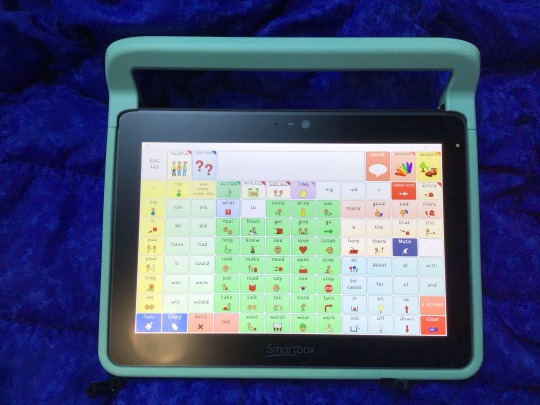
Pixie make whole email to Best Buddies friend all with new AAC device Grid Pad !
speech therapist be so proud for Pixie work hard to learn !
#actually nonverbal#nonverbal#autism#full time aac user#nonverbal communication#actually autistic#speech therapy
130 notes
·
View notes
